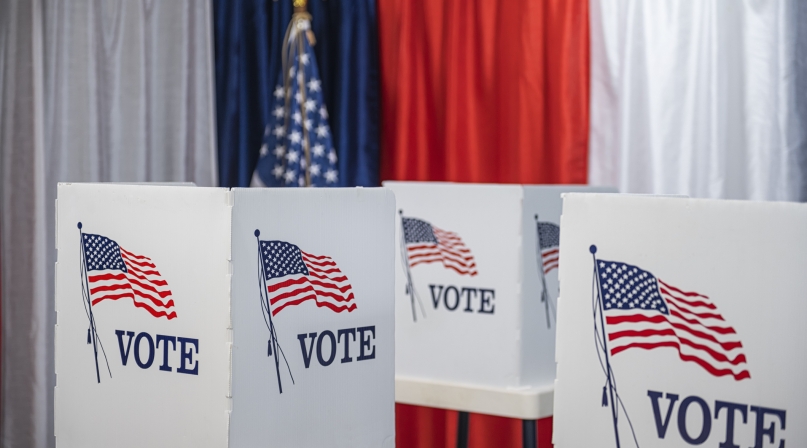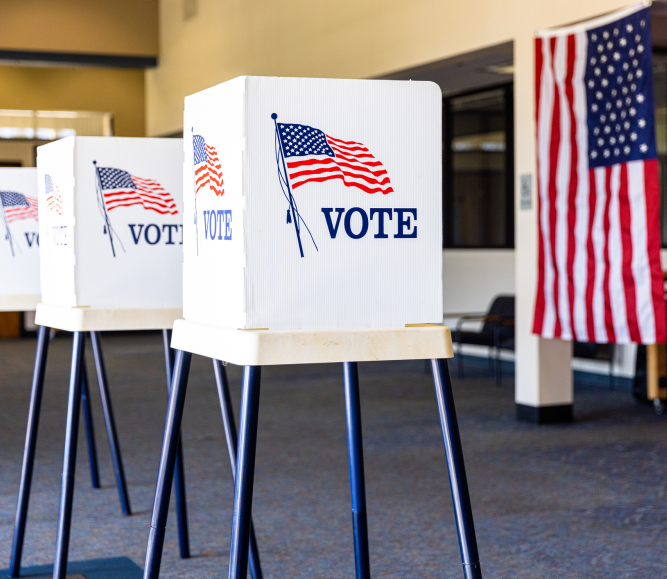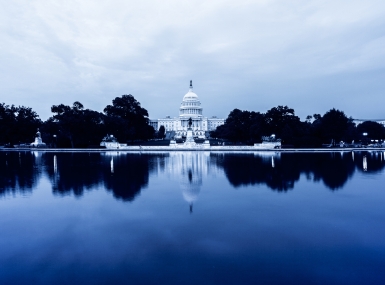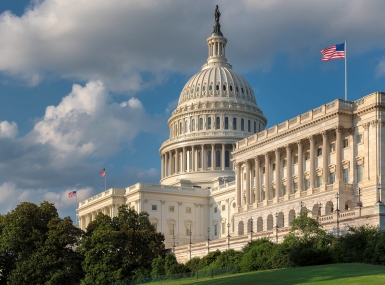U.S. House Administration Committee considers several election bills ahead of 2024 General Elections
Author

Paige Mellerio

Maxx Silvan
Upcoming Events
Related News

Key Takeaways
On May 23, the U.S. House Administration Committee held a full committee markup session in which it considered the following federal elections legislation:
- Safeguard American Voter Eligibility (SAVE) Act (H.R. 8281)
- Preventing Foreign Interference in American Elections Act (H.R. 8399)
Both bills considered were reported to the House floor favorably on party-line votes after several amendments, including those that included the text of the DISCLOSE Act of 2023 and the Freedom to Vote Act, offered by House Administration Committee Ranking Member Rep. Joe Morelle (D-N.Y.) were voted down.
What would these bills do?
Introduced by Rep. Chip Roy (R-Texas) and championed by Speaker of the House Mike Johnson (R-La.), the SAVE Act (H.R. 8281) would require individuals to provide documentary proof of U.S. citizenship with a voting registration application. The requirement to provide photo identification would also apply to voter registration processes with applications for motor vehicle driver’s licenses under the National Voter Registration Act of 1993.
H.R. 8281 would also require individuals that register using the National Mail Voter Registration Form to provide documentary proof of U.S. citizenship in person to the office of the appropriate election official responsible for voter registration in the state. This legislation also directs states to establish a process for removing non-citizens from existing voter rolls, an alternative process for U.S. citizens who lack documentary proof of citizenship and sets forth federal penalties for knowingly registering non-citizens to vote in federal elections.
Introduced by U.S. House Administration Committee Chair Bryan Steil (R-Wis.), the Preventing Foreign Interference in American Elections Act (H.R. 8399) would prohibit foreign nationals from funding U.S. election administration and get-out-the-vote activities and make clarifications to the existing ban on foreign nationals providing indirect contributions. The legislation would also restrict federal agencies from disclosing the identity of donors to tax-exempt organizations.
How do these bills impact counties?
Counties play a limited direct role in the voter registration processes, other than in states that allow same-day voter registration at polling places. The SAVE Act could require counties to modify their voter identification requirements for same-day registration depending on its state’s current laws and regulations. County election offices would also be responsible for voter outreach and poll worker training on this legislation, which currently does not include federal funding to help cover costs of these activities.
NACo will continue to advocate for county priorities in election administration while monitoring these bills and will keep members apprised of any future developments.
Resource
County Election Administration Federal Advocacy Toolkit

Related News

MEGA Act moves in House; NACo raises county concerns
On Feb. 10, the U.S. House Committee on Administration held a hearing to consider the Make Elections Great Again (MEGA) Act (H.R. 7300), which was introduced by Committee Chairman Rep. Bryan Steil (R-Wis).

House passes SAVE Act; Major impacts on county election administration
Next week, the U.S. House of Representatives is slated to vote on the Safeguarding American Voter Eligibility (SAVE) Act (H.R. 22), making it the chamber’s second vote on a version of the legislation in less than a year.
